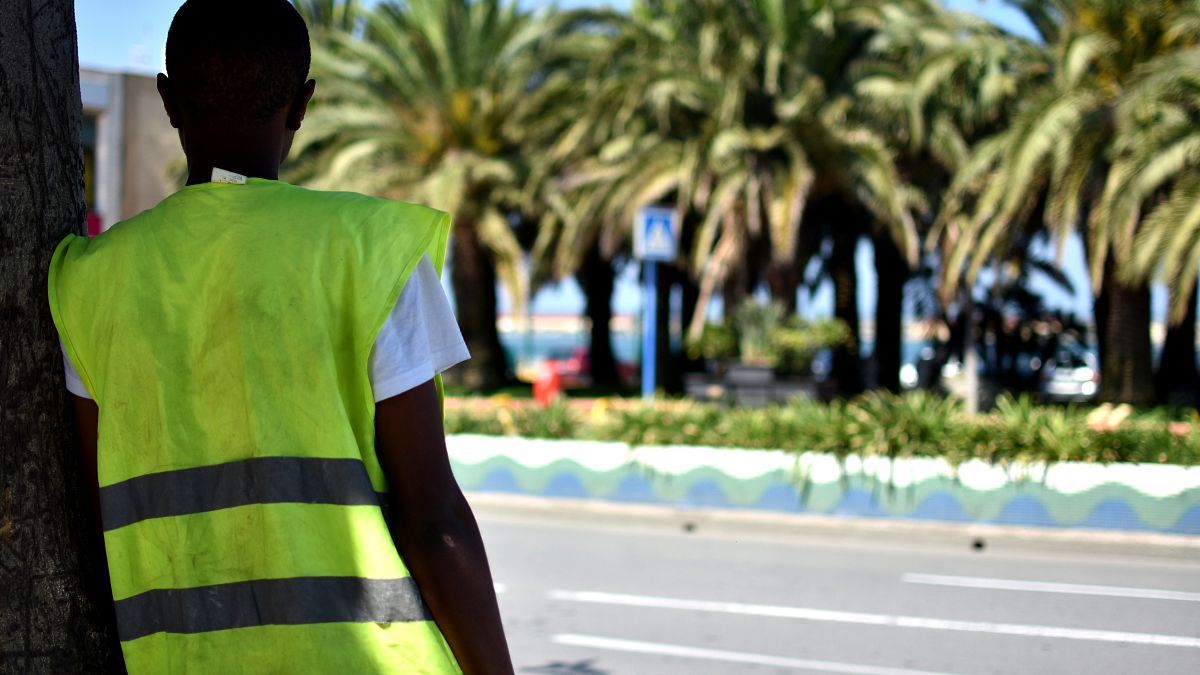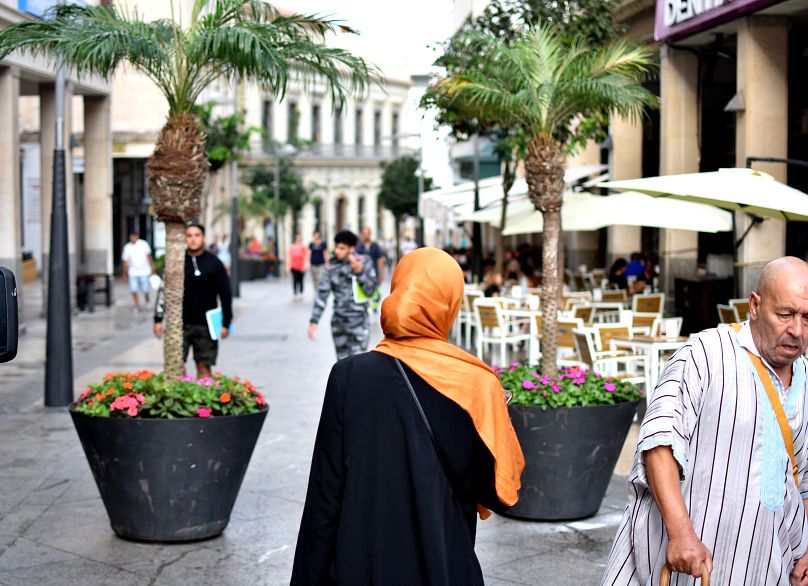Behind the sensational headlines, Ceuta is very much like a normal Spanish town where residents have learnt to live in harmony with the incoming migrant population.
“The last two assaults were much more violent,” said Pepe Languani, President of Ceuta’s Business Confederation, with anger in his voice.
He is referring to two incidents in July and August in which 800 people attempted to scale the border fence separating the Spanish enclave of Ceuta from Morocco. Chemicals and improvised weapons were reportedly used against Spanish border guards, injuring several officers.
“It’s getting worse, it’s left a huge impact on us here,” he continued. Languani is among a growing cohort in the Ceuta that believes life on Europe’s immigration front-line is reaching a breaking point.
Sitting atop Morocco’s northern tip, just 14 kilometres separate the town from the Spanish mainland. It remains one of only two land borders shared by the EU and Africa, along with the Spanish enclave of Melilla 380 kilometres east down Morocco’s coastline.
A Spanish built border fence has fortified the town from the African continent since 1993. What has followed is a well-rehearsed routine of breaches followed by increased securitisation of the fence. Most recently, in 2005, it was elevated to its current height of six metres.
But, the anxiety articulated surrounding new arrivals is hard to reconcile with the palpable normality to day-to-day life in the town.
The picturesque town centre, with its tree-lined boulevards and serene café culture, looks much like any other one in Spain. Occasional police checkpoints and sightings of Spain’s Guardia Civil (civil guard) remain the only indication that there exists an internationally significant immigration issue.
Its population is visibly diverse; almost half of Ceuta’s 85,000 residents identify as Muslim, along with a minority of Jews and Hindus. Roman Catholics comprise the majority in a town that proudly proclaims its long tradition of ‘convivencia’ – religions peacefully living together.
But the increasing intensity and frequency of incursions in recent years mean that for Languani issues surrounding immigration are becoming unsustainable.
“These attacks are harming Ceuta’s image,” said Languani. “It’s putting off investors, putting off tourists, and hurting our economy. We are suffering.”
An evolving political situation
Contributing to anxiety within Ceuta is a rapidly changing political landscape, both internationally and nationally.
The latest figures from the International Organisation for Migration show Spain is now the leading destination for migrant arrivals to Europe by sea. As of late September, 36,000 migrants arrived in Spain via the Western Mediterranean route through Morocco in 2018 – more than Spain’s combined total for 2015, 2016 and 2017. In September alone, Spain’s arrivals were twice that of Greece, and nearly seven times larger than Italy.
Inevitably, statistics such as these contribute to the sense of vulnerability articulated within Ceuta.
“Our situation, where we are, the way migrants arrive here, it is unique,” says Ceuta Government Spokesperson Jacob Hachuel Abecasis, sitting in his office situated in Ceuta’s grand neoclassical city hall. He paints a picture of a town struggling to keep pace with its current rate of immigration.
“The situation is not under control, in Ceuta, Spain or Europe."
The arrival in June of Pedro Sánchez as Prime Minister has introduced further uncertainty, with his Spanish Socialist Workers' Party (PSOE) adopting a markedly more sympathetic rhetoric towards immigration than the previous Partido Popular government.
In June, Sánchez allowed three vessels to dock in Valencia with 630 migrants on-board after they were turned away from Italy and Malta. Soon after, he announced the restoration of free health care for undocumented migrants in Spain.
A month later, the PSOE’s new Interior Minister, Fernando Grande-Marlaska, pledged to remove razor wire from the enclave’s border fences in favour of “less cruel” methods of containment — an unwelcome announcement for Hachuel.
“Barbed wire is the most effective system to secure the town from more arrivals. It’s used on borders all around the world, it should not be removed,” he told Euronews
Life beyond sensational headlines
Yet, obscured beneath sensational headlines is a relative harmony that has emerged between the local and immigrant communities.
Venturing into Ceuta’s industrial district – on the warehouse-lined streets in the immediate vicinity of the port – young sub-Saharan men in hi-vis jackets help Ceuta’s residents park cars and load shopping in exchange for small change.
These transactions, largely charitable in nature rather than essential service, are part of a wider informal economy that stands testament to a level of conviviality in the town between the communities.
“They don’t have anything to do all day or any way to earn money,” says Ceuta resident
Assad, as he waits outside the temporary migrant accommodation centre – the Centro de Estancia Temporal de Inmigrantes (CETI) – to collect two residents. He requests that only his first name is used.
“When I have small jobs in the shop that need doing I offer them a small wage to help me. A lot of people in Ceuta have sympathy with them.”
Overcrowding is an issue at the CETI; officially the centre’s capacity is 512, but a CETI spokesperson said it currently holds almost twice that number at 933 residents. More than half of residents are from Guinea (593), with Algerians comprising the next largest group (204).
It is not a detention centre and so residents are free to come and go using an identification card. Each day, a steady flow of migrants go back and forth from the CETI perched in Ceuta’s hillside, making the three kilometres walk along the coastal path towards the town in search of work.
“We can leave from 7 am and come back any time before 7pm,” said Muhammad, a 27-year-old Gambian who fled poverty, unemployment and police oppression. “You have to arrive at the warehouses early and line up to get a job for the day.”
The men without jobs congregate at the same spot by the beach, the only place they can access free public wi-fi. They combat the monotony of life in Ceuta by speaking with their families at home or checking social media.
Migrants are restricted from travelling beyond Ceuta, with most relocated to immigration centres on the Spanish peninsula within a year. Until then, the young men simply wish to find a purpose to life in Ceuta, a town that acts as their open-air detention centre.
“We are young men, we don’t want to sit and do nothing every day,” Muhammad says. “That is why we do this tiring work for little money.”

